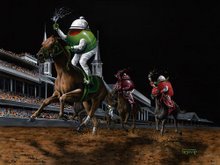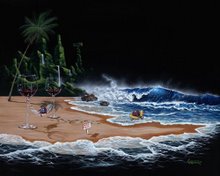

LESSONS IN CIVICS & THE CONSTITUTION – H
Part B.
Judiciary Act – (1789)

In the DeLovio vs. Boit case, Justice Story stated: “And, the ground is made stronger by the consideration, that the right of trial by jury is preserved by the constitution in all suits at common law, where the value in controversy exceeds twenty dollars; and by the statute this right is excluded in all cases of Admiralty and Maritime jurisdiction.” Here we have a clear statement, by the Supreme Court that there is no access to Common Law in courts of Admiralty.
The Supreme Court of the State of Pennsylvania, in 1832, very ably addressed the meaning and intent of the 7th amendment in the case of Bains vs. The Schooner James and Catherine, by stating the following; “….by attempting to introduce the admiralty jurisdiction of the civil law …a foundation is laid for interminable conflicts of jurisdiction between the courts of the State and the Union. It is vain to contend that the Seventh Amendment will be any efficient guarantee for the right, in suits at common law, if an admiralty jurisdiction exists in the United States, commensurate with what is claimed by the claimant in this case. Its assertion is, in my opinion, a renewal of the contest between legislative power and royal prerogative, the Common and Civil Law, striving for mastery; the one to secure, the other to take away the trial by jury, … judicial power must first annul the Seventh Amendment, or judicial subtly transform a suit at Common Law, into a case of Admiralty and Maritime jurisdiction, before I take cognizance as such a case as this without a jury.”
Thus, Admiralty is Civil Law, and Common Law is not accessible in courts of Admiralty – and, as J. Reuben Clark said, there is a constant ideological conflict between Civil and Common Law for the control of society.
LESSONS IN CIVICS & THE CONSTITUTION – I Part A
Introduction of the George Rapp Society
First Successful Communistic, Religious, Organization in the
United States
The society was designed for the purpose of profit making and its formula included a controlled economy under limited liability, which you will find is the exact same formula of the Federal Reserve that is running our country today. It is this formula that has resulted in bringing Admiralty Law inland and has barred our access to substantive Common Law. George Rapp Harmony Society – 1805 (Re: Schriber v. Rapp, Pa. Supreme Court, 351) George Rapp founded the “Harmony Society” in 1805 at Harmony, in Beaver County, Pa., and soon moved to Harmony on the Wabash, in the State of Indiana, and then moved to “Economy” in Beaver County Pa. The nature of this society was brought to light in the case of Schriber v. Rapp in 1836. This case was an action of account brought by Jacob Schriber, administrator of Peter Schriber, deceased, against George Rapp and others, doing business in company under the name of Harmony Society. To sustain the action, the plaintive proved by testimony that the Harmony Society possessed a great deal of wealth in the form of personal property, real property, factories, etc.
Dr. Smith, a witness and onetime member of the association stated: “They intended to make money when they entered into it; it was a part of their object. I believe there were Articles at Harmony, but everyone was not obliged to sign it. Equal rights, equal enjoyments and equal profits. Rapp said it should not be incorporated, for that would take too much power from him. Rapp was not elected. He assumed the power that Moses and Aaron had. If anyone would not do what he said, he would say, ‘What have you to do about it? I have the power – I could crush you. All you have to do is obey.’ He got worse as he got wealthy.”
George Rapp was a very persuasive preacher. Adam Shelly testified on behalf of the plaintiff respecting the first articles of association on the Wabash. “The people were directed to come in companies, one of them read it and the rest signed it. As to the Article signed at Economy, Rapp made a long speech. He said that anyone who would sign it would have his name written in the Lamb’s Book of Life. If they did not, their names would be blotted out, and God would ask him about it.”
Next week, July 24th, I will continue with the George Rapp Society.






























|